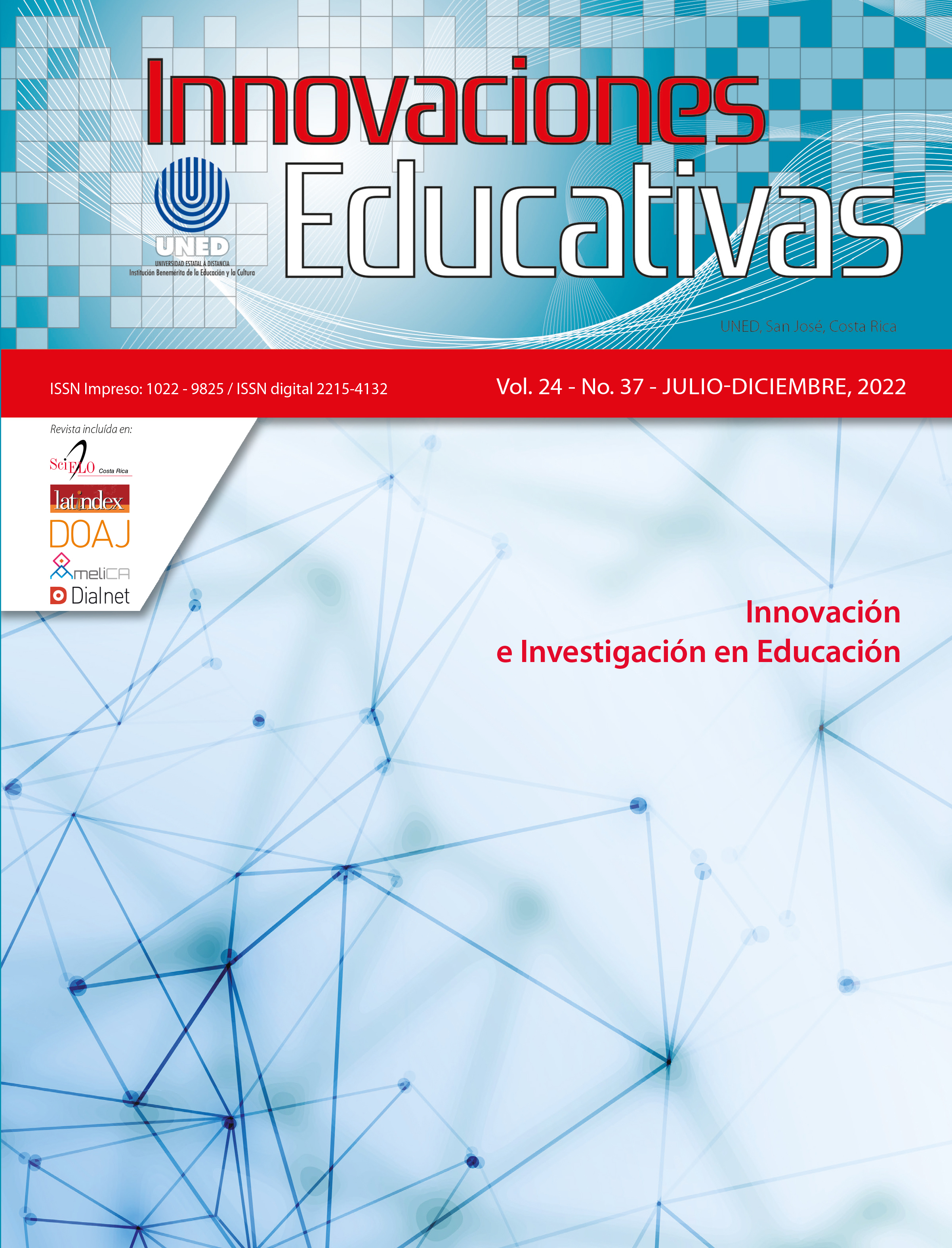Education as a political act in Freire. Anti-dialogical theory, cultural arbitrariness and banking education: notions to understand the reproduction of inequalities in Latin America
DOI:
https://doi.org/10.22458/ie.v24i37.4316Keywords:
Education, Social inequality, Oppression, Social tensions, Freedom of opinion, Paulo FreireAbstract
The essay proposes a discussion to understand education as a political act, from the notions about social inequality that are implicit in the first phase of Freire's work. For this, it starts from the understanding of the educational, the social and the conflict in the oppressed subject-oppressor subject relationship. Likewise, the centrality that notions such as the dialogical versus the anti-dialogical acquire in it, the link between objectivity and subjectivity, the processes of awareness and praxis, that is, the joint relationship of action and critical reflection; all this within the framework of liberating education. One of the premises of the essay is that in Freire's work there is no explicit mention of what is currently known as the "social inequality" approach, but rather that it is assumed in the vast Freirean discussion. It is argued that, through anti-dialogical relations, the definition of cultural arbitrary and banking education, the oppressive subjects guarantee the maintenance of the material and symbolic conditions of oppression. In other words, it is above all about inequalities of knowledge, the product of an education that does not allow the process of humanization and awareness for the liberation of the oppressed.
References
Bobbio, N. (1993). Igualdad y libertad. Paidós.
Bourdieu, P. & Passeron, J.-C. (1979). La Reproducción: Elementos para una teoría del sistema educativo. Editorial Laia.
Claramunt, L. & Barros, M. V. (2019). La gestión de la educación en contexto de neoliberalismo. XIII Jornadas de Sociología. https://www.aacademica.org/000-023/449
Delfino, A. (2012). La noción de marginalidad en la teoría social latinoamericana: Surgimiento y actualidad. Universitas Humanística, 74, 17-34.
Escobar Guerrero, M. (2007). Las cuatro etapas de Paulo Freire en sus cinco pedagogías: Del oprimido, de la esperanza, de la autonomía, de la indignación y de la tolerancia. EccoS Revista Científica, 9(1), 199-219.
Freire, P. (1967). La educación como práctica de la libertad. Siglo XXI.
Freire, P. (1970). Pedagogía del oprimido. Siglo XXI.
Freire, P. (1971). ¿Extensión o comunicación?: La concientización en el medio rural. Siglo XXI.
Lucio-Villegas, E. (2015). Paulo Freire. La educación como instrumento para la justicia social. Revista Internacional de Educación para la Justicia Social, 4(1). https://revistas.uam.es/riejs/article/view/982
Mora Salas, M. & Pérez Sáinz, J. P. (2009). Excedente económico y persistencia de las desigualdades en América Latina. Revista Mexicana de Sociología, 71(3). http://revistamexicanadesociologia.unam.mx/index.php/rms/article/view/17757
Pérez Sáinz, J. P. (ed.) (2012). Sociedades fracturadas: La exclusión social en Centroamérica. FLACSO.
Pérez Sáinz, J. P. (2014). Mercados y bárbaros: La persistencia de las desigualdades de excedente en América Latina. FLACSO.
Pérez Sáinz, J. P. (2015). La región más desigual. En busca de sus raíces desde una perspectiva crítica. En M. Castillo Gallardo & C. Maldonado (eds.), Desigualdades: Tolerancia, legitimación y conflicto en las sociedades latinoamericanas (pp. 39-67). RIL Editores.
Pérez Sáinz, J. P. (ed.). (2018). Vidas sitiadas. Jóvenes, exclusión laboral y violencia urbana en Centroamérica. FLACSO.
Santelice Quiroga, F. (2017). Llaves reflexivas en torno a las desigualdades cotidianas y globales. Andamios, 14(33), 357-361.
Sartori, J. (2015). Educación bancaria / Educación problematizadora. En D. R. Streck, Dicionário Paulo Freire (p. 526). Consejo de Educación Popular de América Latina y el Caribe (CEAAL). https://ceaal.org/v3/libceaal_diccionariopaulofreire/
Tilly, C. (1998). Durable Inequality. University of California Press.
Downloads
Published
How to Cite
Issue
Section
License
Copyright (c) 2022 Innovaciones Educativas

This work is licensed under a Creative Commons Attribution-NonCommercial-NoDerivatives 4.0 International License.

